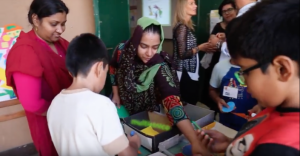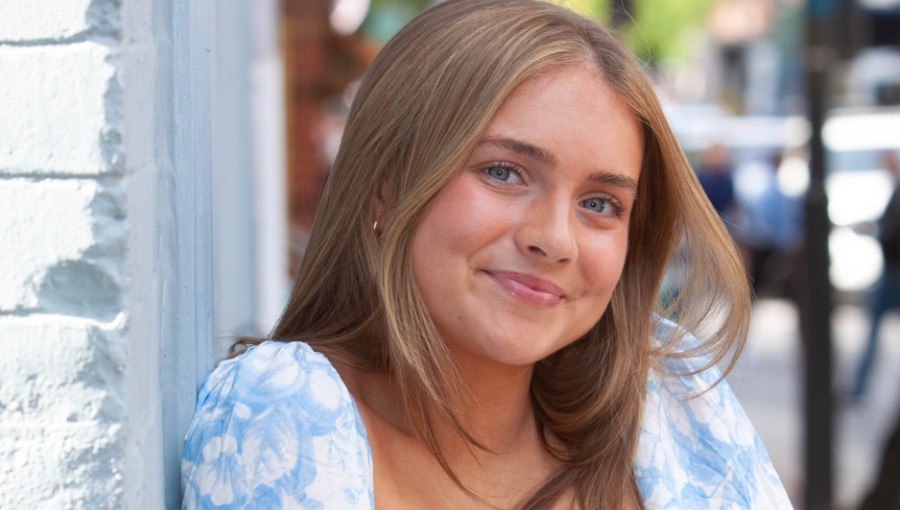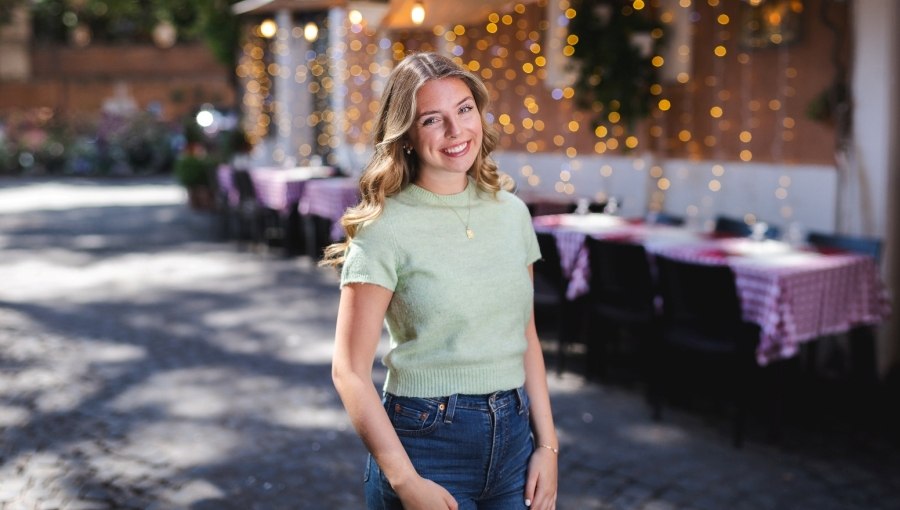Expression through Music: Student Karima 2G Teaches Elementary School Children
Anna Maria Gehnyei, aka Karima 2G, is a JCU student and music artist double majoring in Political Science and Communications. Of Liberian origin but born in Rome, Karima is a singer, dancer, and producer. Recently, Karima started teaching at primary school Carlo Pisacane, in Rome’s multicultural Torpignattara neighborhood, for the project “Laboratori di autonarrazione per giovani apprendisti,” an initiative that aims to encourage the second-generation children of immigrant parents to express themselves through music.
How did you get involved in the project?
I have been recording music for quite some time. My colleague Amir, who is a rapper, was already collaborating with the Pisacane school, so when they needed another teacher he recommended me. I go to the school every Friday to teach two to three classes, with about 20 students each. In addition to teaching children about music, we also teach them to believe in themselves. I wish I had had the same support when I was growing up.
What have you learned from this experience?
During the first lesson, I noticed that some children don’t want to speak Italian because they don’t feel confident with it since their families speak in their native language. On the other hand, in some schools teachers discourage children from speaking their native language in class. This can create confusion in the student. When I was a child, I had the same problem. I didn’t speak Italian with my family, we only spoke Pidgin English. However, I always believed that roots are an important part of who you are. I try to teach my students that we should appreciate our heritage and not forget our native language.
I was generally surprised by the maturity of my students. In one of my lessons, I asked them to think about the meaning of the word ‘journey’. Some children talked about a mental journey, others about a visual one. Some meant trip. One boy said that it was like the journey that we experience with this project.
What difficulties have you encountered and how have you dealt with them?
I tell my students to work together (they are always happy about it, by the way) because what I’m trying to do with this project is to show them how to freely express themselves: whether it is through music or words. How to talk about themselves in Italian, while at the same time not forgetting about their roots and heritage.
In my class, there was an 8-year-old girl from Bangladesh. When I asked her to talk about herself, she was afraid to share her feelings because she wasn’t confident speaking Italian, just like me when I was a child. So I thought it was important for her to learn how to communicate despite that. I told her that even if she doesn’t know a specific word in Italian, she could find some other words or even use the ones from her native language. Following my advice, she finally opened up and was able to communicate and share what she felt.
What prepared you for this project?
All my life has been a training session. I am basing my teaching strategy on my own experience and music. I teach them how to do what I am doing now: how to express themselves and most importantly to be themselves, not to be shy, not to be afraid of racism, and even to transform the negative into the positive.
Karima 2G recently published an article in the Corriere della Sera, one of Italy’s main daily newspapers. In the article, she discusses racism, stereotypes, and how she uses her music to combat prejudice. She also talks about her positive experience at John Cabot University. Read the article “Stereotipi, pregiudizi, pratiche razziste contro afroitaliani e immigrati neri” (in Italian).







